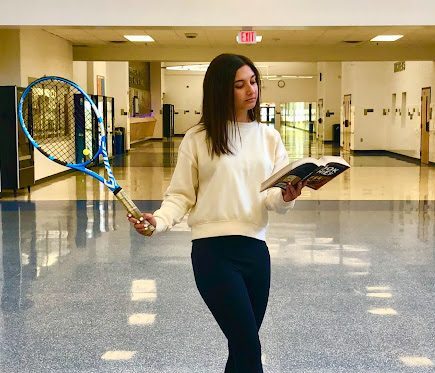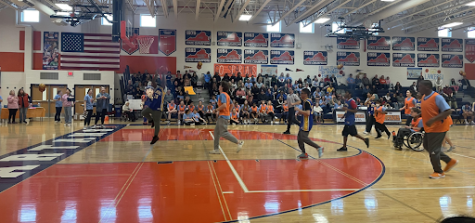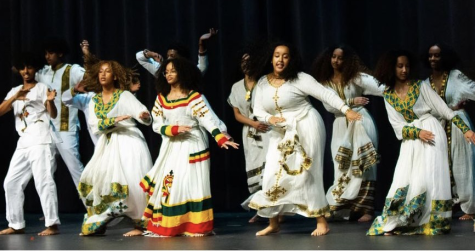Balancing academics and athletics

Photo courtesy of Emily Yelnicker
Though difficult, student athletes are able to manage balancing sports and academics. Obstacles ranging from sleep deprivation to test stress, and benefits like the bonds gained with teammates make it a complicated topic.
Third and fourth quarter, typically the busiest times of the school year, present a problem for those who play spring sports. Student athletes prioritize either schoolwork or their sport causing stress and guilt over clashing responsibilities created for those who have to work on a team.
Academics can interfere with the mindsets of student athletes. This can lead sports to interfere with projects, testing, and finals.
“I’m in all honors [classes], and it is more challenging because there’s a lot more work. You kind of have to sacrifice your time for either sports or work,” explained freshman Dean Houchin.
Sports often require four or five days of practice each week, with each practice lasting hours every day. This leaves students scrambling for time to focus on school, while also trying to play their sport.
“It’s hard to balance sports and academics,” said freshman Taiga Uhing. “If I have a test and then I have a soccer game on the same day, it’s hard to do.”
Though sports and school may be hard to balance at times, several students have found ways to balance their time. With an organized schedule, freshman Whitney Moffa is able to balance both school and sports. This has allowed her to keep up with her academics and her sport, despite being an honors student and on the varsity tennis team.
“It’s all in the organization of everything,” explained Moffa. “I’m definitely a planner.”
Even among athletes who are able to practice their sport and get their schoolwork done, managing a healthy sleep schedule can still elude them. According to the CDC, teens between 13-18 years of age should be getting eight to ten hours of sleep every night. Student athletes can go through their days with only around six or seven hours of sleep. This can pave the way for potential issues like exhaustion in class or during gameplay.
“I get six or seven hours,” Houchin said, and added that with more sleep, he would most likely perform better in both sports and school.
Students may prioritize school over sports, which sometimes requires them to miss practices or games.
“[Missing practice to study] makes me kind of feel guilty in a way because I kind of missed a practice that I should have gone to,” Houchin stated.
Some students also find that they are pressured to do sports from other circumstances, such as parents or college goals. Forcing students to be more well-rounded and stand out from other aspiring college applicants can put a significant amount of pressure on them to excel in both sports and school.
Amid difficulty in balancing both academics and sports, students are still capable of remaining happy with the sport they are playing. It can be seen as a way to destress from school and have fun playing their game.
“Honestly, tennis is kind of like a coping mechanism for the stress,” Moffa said.
Not only that, but friendship and camaraderie is built during these practices and games as well, with teammates bonding over their hectic schedules.
Although sports and academics sometimes do not mix well, student athletes are resilient. They discover ways to work around the problems and find time for both sports and school in their everyday lives.








